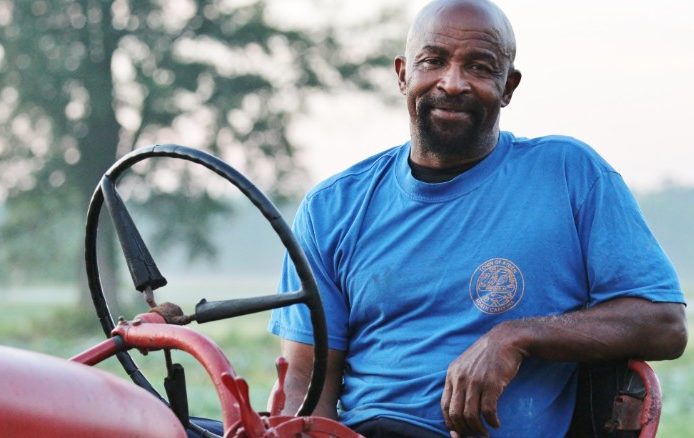
With what's going on in healthcare, there are many things up in the air, especially when it comes to the health of African Americans. But instead of waiting to see what Congress or the government is going to do, some are taking their health in their own hands and coming together.
Just outside of Raleigh, North Carolina, there's a little town of Conetoe -- population 300 and predominately African American. The town is surrounded by farmland, but the nearest grocery store is 10 miles away, making it one of the country's many "food deserts," where fresh, nutritious food is not readily available.
"The cause of the funerals was was poor access to healthcare and poor access to affordable healthy food." That's where Rev. Richard Joyner, a local pastor, stepped in and stepped up.
YOU MAY LIKE: From Gangster To Gardener, Rapper Teaches Youth How To Grow Food
So Joyner started a community garden and enlisted local children to help him care for it. Today, his nonprofit, the Conetoe Family Life Center, manages more than 20 plots of land, including one 25-acre site.
"Diabetes, high blood pressure -- when we first got started, we counted 30 funerals in one year," Joyner said. "I couldn't ignore it because I was spending more time in funerals than anything else." This community garden directly impacts both the food desert issue and the death of his members.
More than 80 young people help Joyner plan, plant, and harvest nearly 50,000 pounds of fresh food a year. Much of this produce is given away to local residents. But the students also sell the food -- including their own brand of honey -- to businesses and restaurants, raising money for school supplies and scholarships.
CNN talked with Joyner about his work and the impact it's had on his life. He was even nominated as a 2015 CNN Hero. It's hard to believe that something so great started with death.
"I was literally exhausted from the funerals, and I was asking God, 'What are we going to do?' And I really heard a voice saying, 'Look around you.' I looked around and...
there was nothing but land."
But there was a little pause from Joyner where he wasn't really sure this was the calling that God gave him because of one minor glitch: Joyner didn't like farming.
"Now, I didn't like farming, and I almost paused and said, 'Is there anybody else up there I can talk to?' But it was almost like my eyes opened up, and so that's what we started doing."
"I didn't have a good experience with the soil growing up. My family, we were sharecroppers. We grew up eating from the garden. But it was more of a process of pain. I can literally see this guy getting out of this pickup truck, telling my father that he didn't make any money for the year. It was so painful to watch my father be oppressed, to watch him walk away with nothing. That's why I did not like the land."
"When I came back to the land, I had to deal with my anger. And I'm still coming through that process. But for me, working in the garden has been a healing place. This has given me the opportunity to appreciate what my father took pride in teaching me about the fields. At this point now, I like the garden. It's a place we can play. It's a place where we can produce. And it's a place where we can live."
From children to adults, they all learn how to cook the food in a nutritious way, helping each family eat healthier at home. As a result, many people are now reaping the benefits of Joyner's ideas. Emergency room visits are down, and the community as a whole is healthier.
Joyner also feels the efforts are bearing fruit in a way that's far beyond just monetary and health.
"Growing food calls us to work together," he said. "By nourishing plants, you're nourishing community. It's one and the same."
Find out more about the Conetoe Family Life Center by clicking here.








